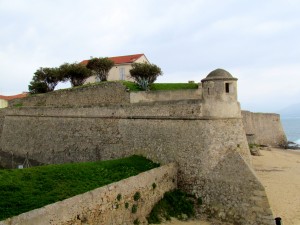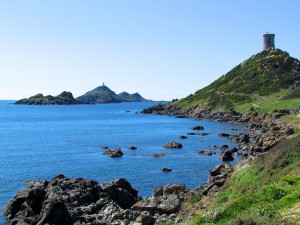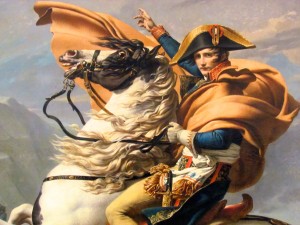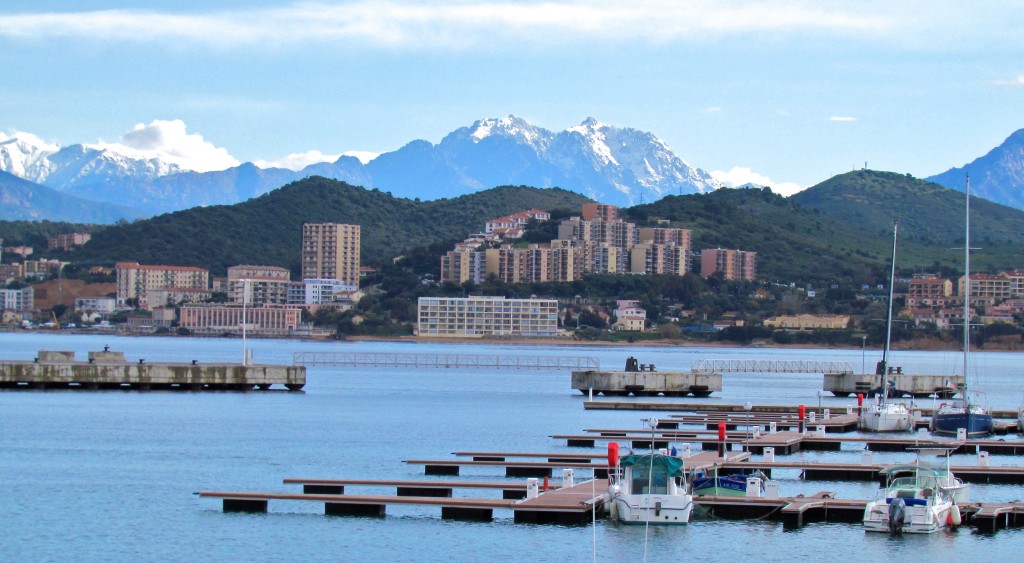I arrived in Corsica believing Napoleon had grown up poor within limiting confines. At twenty-six, how could he have dared to whisk an army across the snowcapped Alps? How could anyone with few worldly experiences have sailed off blithely to conquer Egypt? I wondered, as so many have, how this island boy of narrow prospects could have aspired to rule the world.
His hometown of Ajaccio on a clear day removed my blinkers.
Two short blocks from Napoleon’s home, he encountered the citadel and its intriguing foreign soldiers.  A few steps more and he’d be at the docks, where stoic fishermen and gambling traders set out to win their fortunes on the wide-open sea. When he raised his eyes, he faced the vast, snowcapped mountains that form the backbone of Corsica.
A few steps more and he’d be at the docks, where stoic fishermen and gambling traders set out to win their fortunes on the wide-open sea. When he raised his eyes, he faced the vast, snowcapped mountains that form the backbone of Corsica.
 If he took off in the other direction away from town, he could run for miles along a wind-swept shore. In his time, Corsica may have been remote, but it was not a narrow world topographically. As I myself stood in Ajaccio harbor, savoring the windy salt air and the radiant mountains, a rising optimism filled my heart. The whole world lay before me, all of it within grasp.
If he took off in the other direction away from town, he could run for miles along a wind-swept shore. In his time, Corsica may have been remote, but it was not a narrow world topographically. As I myself stood in Ajaccio harbor, savoring the windy salt air and the radiant mountains, a rising optimism filled my heart. The whole world lay before me, all of it within grasp.
Ambition and a sense of the possible can grow out of geography. That alone accounts for much of my own country’s greatness. Americans’ thoughts can be expansive because our land is.  Early in life, Napoleon Bonaparte’s Corsican homeland accustomed him to the opportunity variety offers. It taught him to be at ease with the unknown.
Early in life, Napoleon Bonaparte’s Corsican homeland accustomed him to the opportunity variety offers. It taught him to be at ease with the unknown.
When you can see a wide horizon, you can dream. If you are also born with a fearless nature, you explore, and, with a little luck, conquer.


Pingback: Finding Napoleon in Berlin - Part 2 - Finding Napoleon
Pingback: Finding Napoleon in Berlin - Part 2 - Margaret Rodenberg